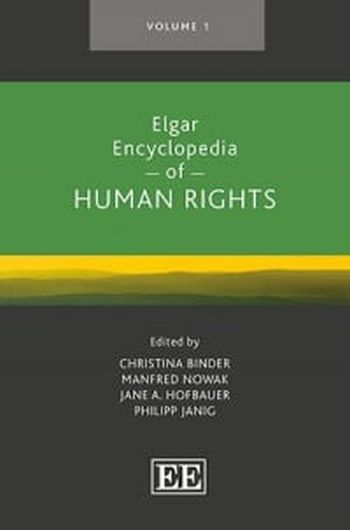
The Elgar Encyclopedia of Human Rights is the most comprehensive reference work in the field of international human rights protection.
Comprising over 340 entries, presented alphabetically, and available online and in print, the Encyclopedia addresses the full range of themes associated with the study and practice of human rights in the modern world. The topics range from substantive human rights to the relevant institutions, legal documents, conceptual and procedural issues of international law and a wide variety of thematic entries. The Encyclopedia has a distinct focus on international human rights law but at the same time is enriched by approaches from the broader social, sciences making it a truly unique and multi-disciplinary resource.
The Encyclopedia boasts an incredibly diverse author team, featuring contributions from close to 300 scholars and practitioners from more than 65 countries, representing all regions of the world. Contributors include leading experts in their respective fields - among them current and former UN Special Rapporteurs and Independent Experts, renowned academics, judges of national, international and regional (human rights) courts, members of universal and regional human rights bodies, members of the International Law Commission, as well as legal advisors of foreign offices and international and non-governmental organizations.
Key Features: